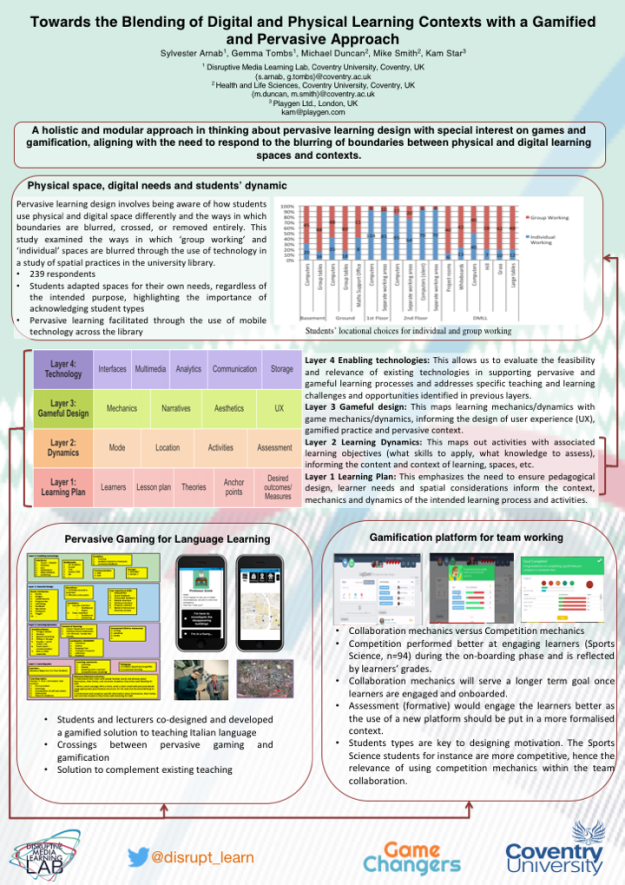Author: Gemma Tombs 16th December 2015
Reblogged from gemmatombs.com
Last week, I attended the Games and Learning Alliance conference in Rome with my colleague Sylvester Arnab. Unfortunately, we missed the first day, when workshops were being held on a number of educational games. Jacqueline Cawston and Oliver Wood from the DMLL held a workshop on the H2020 funded Pergamon project, which by all accounts went very well and the recording/outputs should be up on the DMLL webpage shortly. Sylvester and I presented on a mix of projects that have been ongoing in the DMLL for the past year, including Imparapp and the Library Spatial Practices project – the poster we presented is shown below.

My priority for this conference was to try and glean a greater understanding of the kinds of pedagogies that are being used in serious games, and the methods and methodologies that are being used to research that learning. There was one paper in in particular that caught my interest. Matthew Daggett of MIT (can’t find him on ResearchGate or Academia.edu, unfortunately) presented ‘An Information Theoretic Approach for Measuring Data Discovery and Utilisation During Analytical and Decision-Making Processes’, drawing on information theory. The goal of the project was to design games and systems which can reduce uncertainty about what’s relevant and what isn’t, to particular decision-making situations in the serious game. I was actually most interested in the implications of somehow reducing the “noise” which needs to be sifted through when making decisions in education. I’m not familiar with this area at all – and will be following up on this work – but I wonder about the possible consequences for students’ ability to make decisions in real-life contexts. Part of problem-solving is sifting through that noise and making informed decisions – what are the possible consequences of adapting games to reduce that noise? I’ll also be following up on work by Alysson Diniz Dos Santos and Piero Fraternali on methodological frameworks for serious games.
Overall, I really enjoyed this conference and was grateful for the chance to attend. As someone who isn’t that familiar with the serious games research sector, it was a good introduction, and I can see a lot of opportunities for experimentation with innovative pedagogical approaches and new methodological approaches using mixed-methods or qualitative methods as well.